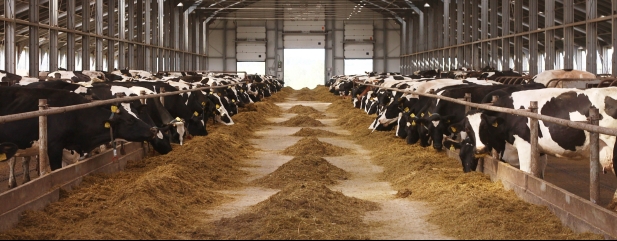Archived article
Please note that tax, investment, pension and ISA rules can change and the information and any views contained in this article may now be inaccurate.
Genus is on the cusp of a transformation to sustainably higher profitability

GENUS (GNS)
Price: £21.80
Market Cap: £1.45 billion
Leading global animal genetics company Genus (GNS) is on the cusp of fully commercialising its proprietary PRP (PRRS or Porcine Reproductive and Respiratory Syndrome virus-resistant pig) technology.
This could be transformational for farmers in the porcine industry who have seen their herds decimated by the virus over many years.
A recent study from Iowa State University reported the devastating virus costs $1.2 billion per year in the US alone.
PRP should provide a material competitive advantage for producers who adopt it, plus it has the potential to transform the profitability of Genus.
The US FDA (Food and Drug Administration) approved the use of Genus’ gene editing technology for use in the food supply on 30 April 2025, earlier than anticipated.
This gives Genus the green light to begin exploiting the opportunity, although there is still work to be done in terms of getting regulatory approval in the key US export markets of Canada, Mexico and Japan, with announcements expected in 2025.
PRP has already been approved in Brazil, Columbia and the Dominican Republic, while progress is also being made in China.
Analysts at Peel Hunt believe Genus has spent more than £80 million over the last decade developing its proprietary gene editing technology. The company has a strong intellectual property portfolio protecting the technology with 43 patents issued in 37 countries.
Shore Capital’s Sean Conroy is of the view US regulation could extend Genus’ position as the ‘leading authority’ on porcine genetics for decades to come.
Analysts at Peel Hunt and Panmure Liberum believe the full financial benefits of PRP are equivalent to between £11 and £12 per share, with little of the incremental value discounted in the current share price.
At a capital markets day in November 2023, Genus showed PRP could have a material impact on revenue growth and margins, potentially tripling operating profit in its pig division over the next decade, and doubling group operating profit.
The financial benefits from the PRP programme are expected be seen from 2027 onward, based on a calendar 2026 launch.
Meanwhile, the shares trade more than 60% below their peak in 2021 and earnings are depressed.
After a two-year cycle of downward earnings revisions, a new upcycle is within reach as the underlying business stabilises and the emerging PRP opportunity starts to be reflected in financial forecasts.
ROYALTY INCOME MODEL
Genus also operates in dairy and beef herd genetics to help farmers select the best animals for breeding by identifying and selecting desirable animal traits for animal wellbeing, productivity and resilience to disease.
The company has patents on its breeding stocks and related technologies like Sexcel, which allows farmers to control the sex of their cow’s offspring.
The genetics industry has increasingly adopted a royalty income model which today represents around 85% of global volumes and as much as 97% of volumes in the US market.
Typically, a fee is paid at the time of delivery on the cost of goods sold, followed by ongoing royalty fees paid when value is delivered (pigs weaned, pigs marketed, sows used).
Genus believes the advantages of this model outweigh an upfront pricing model as it better aligns with customer benefits and value, incentivises more frequent genetic updates and generates steadier revenue and profit.
The model also ensures income is independent of commodity prices, although if farmers cannot operate at a profit, it does indirectly impact the demand for Genus’ services, as seen in China during 2023 and 2024.
For example, in 2023 pig prices were very volatile, impacted by the African Swine Fever and changing Covid-19 policies. Prices trended down and by the end of the year were below the cost of production, causing farmers not to replace or rebuild their sow herds.
For the six months to the end of December 2024, Genus booked royalty revenue of £87.3 million, up 5% on the prior year and equivalent to around a fifth of group revenue.
STRATEGY AND FINANCIALS
The company’s strategic priorities are to achieve stable growth in China, the world’s biggest pig market, improve margins and returns in bovine and deliver a successful commercialisation of its PRP programme.
In a trading update on 15 July Genus upgraded full year adjusted pre-tax profit guidance to ‘at least’ £68 million.
The company also noted strong free cash flow and a reduction in leverage to less than 1.6 times at year end.
In summary, we believe little of the potential incremental benefits from the PRP programme and improved efficiencies are yet to recognised, giving long-term investors a low-risk entry point.
One risk to be aware of is the ongoing tariff uncertainties, given the global export nature of pork and beef products.
Important information:
These articles are provided by Shares magazine which is published by AJ Bell Media, a part of AJ Bell. Shares is not written by AJ Bell.
Shares is provided for your general information and use and is not a personal recommendation to invest. It is not intended to be relied upon by you in making or not making any investment decisions. The investments referred to in these articles will not be suitable for all investors. If in doubt please seek appropriate independent financial advice.
Investors acting on the information in these articles do so at their own risk and AJ Bell Media and its staff do not accept liability for losses suffered by investors as a result of their investment decisions.
Issue contents
Feature
Great Ideas
News
- Infrastructure group Galliford Try hits five-year high on raised guidance
- ‘Ugly’ update sends former ad giant WPP’s stock to 15-year low
- New tariffs threaten European, Canadian and Mexican trade with the US
- Lockheed Martin’s Q2 clues to US defence spending regime
- Bitcoin prices set record as investor bet big on ‘crypto week’
 magazine
magazine








